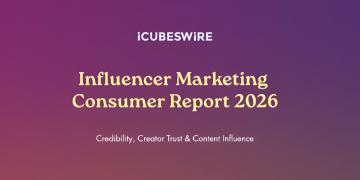The internet’s pervasiveness and digitization have changed the way we shop, manage businesses, and live our lives. It has sped up our lives by putting internet shopping at our fingertips and delivering groceries to our door in minutes. Marketers are under great pressure to engage larger audiences while racing against accelerated digital transformation as more people pick e-commerce for a more convenient existence. Because marketing teams have a single purpose of increasing ROI, they are utilizing new-age technologies to work more effectively and better communicate with customers.
According to the statistics, roughly 34% of marketers expect marketing automation to boost consumer engagement and experience. Marketers may go beyond basic capabilities – email marketing, landing pages, lead nurturing, and so on – by automating boring and time-consuming operations. As a result, marketing automation allows marketers to concentrate on critical areas where customer experience may be fine-tuned, altering the e-Commerce business.
More money and leads are generated as a result of this strategy
One of the most important responsibilities of marketers is to produce more leads, increase sales, and boost revenue. Marketers may reduce their manual intervention in executing onerous processes and focus on lead conversions, eventually turning a firm into a brand, by embracing marketing automation. Marketers may automate email, social media, and ad campaigns, as well as tailor the emails and advertising to attract customers. Automation helps marketers turn leads into consumers by streamlining the emailing process and online marketing efforts. Marketers can use targeted content, automated recommendations, new product promotions, and other tactics to influence customers’ purchasing decisions when more people visit their websites.
Enhances consumer satisfaction
It is critical to engage customers at every stage of the purchase process to ensure the success of any marketing campaign. Marketing automation aids in brand recognition by educating customers about new goods, projects, and more through social media and email marketing. Marketers can engage their customers and respond to their inquiries in real time by automating communication. All of this contributes to the customer’s purchasing decision, and personalized follow-up via automated email or phone helps to build brand loyalty once they’ve made a purchase. From raising awareness to receiving post-purchase feedback, automation can have a significant impact on customers’ purchasing decisions.
Customer insights have improved
While automation aids in increasing marketing productivity and profitability, it also supplies marketers with useful customer data. Real-time tracking and analytics are critical for the success of marketing efforts, which are provided through automation systems. Marketers can use it to examine customer behaviour and engagement. Personalization, on the other hand, is the key to a customer’s heart, and marketers use marketing automation to provide targeted and tailored content to customers and make data-driven decisions for future communication. As a consequence, each consumer receives only the messages that are relevant and personalised to them, making them feel more connected to the company.
Assists in the delivery of an omnichannel experience
The term “omnichannel marketing” has been on everyone’s lips in recent years. The goal of omnichannel marketing is to provide a channel-agnostic experience that integrates seamlessly across all customer touchpoints, whether they are online or offline. A customer can learn about a brand through a variety of channels, including a website, social media, or a physical store. Marketers can use marketing automation to combine data from several channels in order to provide customers with a consistent experience across all channels.
TCO is reduced, and ROI is increased
Any marketing campaign’s ultimate success is determined by its conversion rate and return on investment. Marketers save time, effort, and money by automating important marketing processes. As a result, they can focus on inventing and increasing client experience and building long-lasting partnerships. Improved marketing performance, more income, and better data management can also help to increase lead creation and ROI.
Lastly
As the internet becomes more widely used in India, a large portion of the population shops online. Marketers cannot afford to waste time and effort on mundane chores in this age of digitization and the internet. As technology progresses, marketing automation solutions can assist marketers in focusing on retention strategies while automation technologies handle the hard work.
Article is authored by Aditya Dhruva, CEO, Factoreal.
















